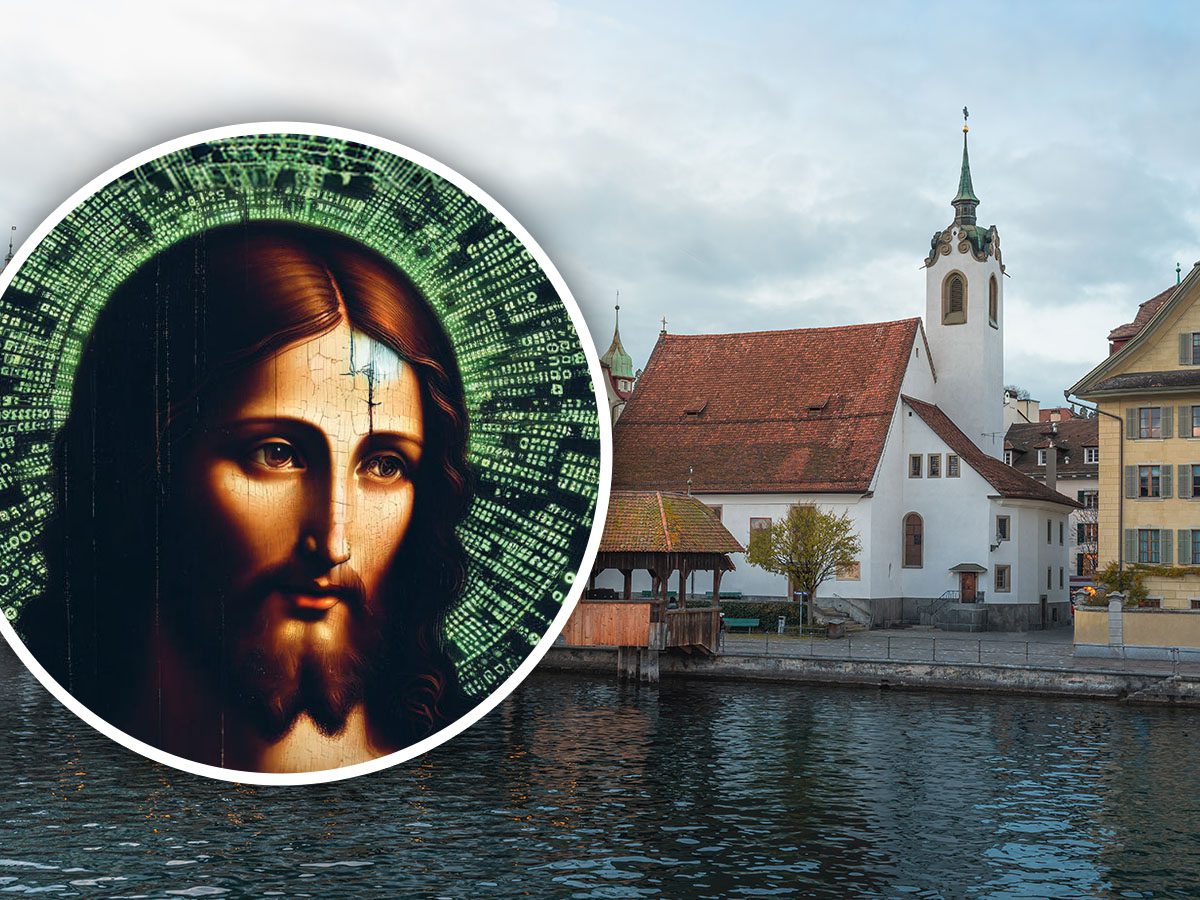
In another intersection of faith and AI, a Swiss church is featuring a hologram Jesus that not only listens to parishioners’ confessions, but also offers advice. St Peter’s Church in Lucerne, Switzerland has installed an AI-powered Jesus hologram as part of an art project. Referred to as “Deus in Machina,” the church contains a shrine with a confessional and a screen with a digitally rendered face of Jesus. Worshipers are being encouraged to share their confessions with the screen, which is powered by AI.
“I was surprised, it was so easy, and though it’s a machine, it gave me so much advice,” said one worshiper. Two thirds of those who spoke to the AI Jesus reported a “spiritual experience.” AI Jesus is equipped to understand 100 languages and users are prompted to “not disclose personal information under any circumstances,” and to “use this service at your own risk.” Users must press a button to accept the terms and can interact with the AI in whatever way they choose. There are also human staff near the installation to help users. Examples of questions discussed with the AI included how to break “the spiral of violence,” to which the AI answered, “through prayer and not seeking retribution.” Being installed in a Catholic church, when asked about why women aren’t allowed to serve as priests, the AI responds by saying, “The scriptures teach that certain roles are defined within the church, each role and task has its place in God’s plan.”
The display is meant to be temporary, though AI has made its way in many theological circles, including denominational websites promoting AI chat bots. The display is planned to run until November 27, when it will lead a presentation of the results from the conversations it has had. The program was developed by Philipp Haslbauer and Aljosa Smolic from the Immersive Realities Center at Hochschule Luzern. Marco Schmid, a theologian at St Peter’s Parish.also assisted with the program’s development. The program received training on the New Testament through the internet.
Critics of the project called it a “gimmick,” with one warning the project “will not be without consequences.” Schmid defended the project. “What we’re doing here is an experiment, we wanted to launch the discussion by letting people have a very concrete experience with AI. That way we have a foundation for talking about it and discussing it with one another.” One benefit of a well-trained AI would be the availability of spiritual help 24/7, something human counterparts struggle to offer.


